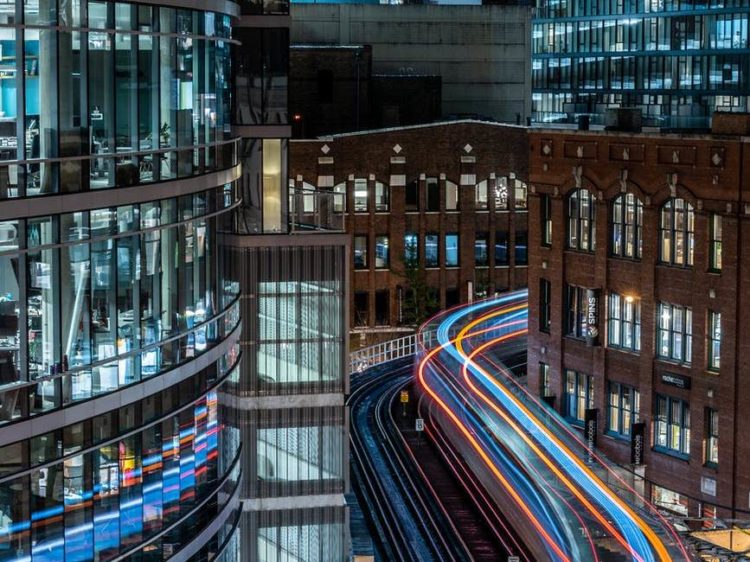Referencing studies conducted by the International Energy Agency (IEA), Tsinghua University and six integrated assessment models (IAM), the Asia Investor Group on Climate Change (AIGCC) estimates that the investment opportunity for Asia’s energy supply to achieve net-zero to be in the region of US$26 trillion (2°C scenario) to US$37 trillion (1.5°C scenario) cumulatively from 2020 to 2050 (equivalent to 1.7% to 2.0% of Asia’s GDP).
Heat pump technology is available but underutilized in Asia-Pacific. Heat pumps can be applied in many industries where hot water is used abundantly such as in food production, semiconductor manufacturing and hotels.
There is immense potential to reduce carbon emissions by replacing boilers and furnaces, which use fossil fuels, with heat pumps. Not only are heat pumps three to four times more energy-efficient than boilers and furnaces in general, but they also can render the heating process carbon-neutral when paired with renewable energy.
Energy efficiency continues to be the low-hanging fruit for decarbonization in the built environment sector. The pandemic has disrupted the commercial property sector and underscored the need for better indoor air quality, resulting in a greater need for retrofit. This is a window of opportunity to build back better. To defray some upfront capital costs, companies can tap into green incentives and loans available by the government and banks.
“The need and demand for a 360-degree net-zero carbon solution are clear. Businesses, governments and global coalitions have all set ambitious sustainability goals over the next two decades, with many aspiring for decarbonization by 2030,” said Katie McGinty, vice president & chief sustainability, government and regulatory affairs officer at Johnson Controls.
Digitalization is a key enabler for companies and organizations to achieve net-zero by 2050 or before.
Johnson Controls offers solutions that guide customers at different stages of their digitalization journey to deliver on net-zero outcome and risk management goals.
JC wins
Johnson Controls (JC) announced three landmark partnerships with companies in Asia-Pacific to help meet their environmental, social and governance (ESG) goals as well as net-zero carbon commitments.
Standard Chartered Bank Asia-Pacific
JC collaborated with CBRE and Standard Chartered Bank to implement its OpenBlue Enterprise Management (OBEM) system in the Standard Chartered Hong Kong office. The pilot saw 7% annual energy savings and has resulted in the OBEM being installed in more than 20 of the Bank’s office sites. Future plans will see OBEM deployed at more than 90 buildings across Asia-Pacific, including China, India, Malaysia, the Republic of South Korea, Singapore and Thailand.
This digitalization effort establishes a strong foundation for sustainability management for Standard Chartered Bank. The Bank is committing to net-zero carbon emissions from its own operations by 2030.
Rose Theater, Japan
JC offered an advanced energy-saving estimation that allowed the theatre to receive a public subsidy. The proposal consisted of a 15-year energy performance contract which included Metasys, Air Handling Unit (AHU) inverter and its overhaul, a carbon dioxide monitoring system for inverter control and various efficient heating systems.
The JC solutions resulted in a more comfortable indoor environment, and efficient facility management for the various amenities on-site, including auditoriums as well as exhibition, meeting, tea-ceremony and practice rooms.
With this retrofit, the Rose Theater will be able to reduce energy consumption by 39% and carbon dioxide emissions by 42%, while shaving 40% off energy costs. With the entire retrofit completed ahead of schedule, the theatre could reopen earlier than planned.
Beijing Municipal Administrative Center, China
Beijing Municipal Administrative Center is now a low-carbon eco-city showcase for the efficient use of geothermal energy. JC partnered with the Center to build an efficient, intelligent and reliable large-scale district heating and cooling system.
In a single heating season of four months, the heat pump system could replace 12 million cubic meters of natural gas consumption, equivalent to savings of 15,000 tons of standard coal, 40,000 tons of carbon dioxide emission reduction, and 100,000 additional trees planted around the energy station.
The solution comprises four ground-source heat pump systems with a total capacity of 39 megawatts installed in one of the energy stations, which provides efficient central heating and cooling for the administrative offices with a total building area of about 960,000 square meters using geothermal energy.
Visal Leng, vice president and president, building solutions, Asia Pacific, Johnson Controls, said, “We recognize the growing commitment of companies to decarbonize and the challenges they face, including capital and knowledge gaps. By working with a range of customers across the region, we have found innovative pathways for them to achieve their sustainability goals.”
He stressed that the Asia-Pacific (APAC) region is seeing an increased interest in heat pumps, particularly from countries with stricter environmental regulations such as New Zealand and companies with carbon-reduction goals.
New JC targets
Johnson Controls has already set ambitious emissions reductions targets, which were recently approved by the Science Based Targets Initiative – an independent organization that assesses corporate sustainability claims.
As part of its environmental sustainability commitments, Johnson Controls aims to cut operational emissions by 55% and reduce customers' emissions by 16% before 2030. Its OpenBlue platform for optimizing building sustainability will be central to fulfilling these goals and ultimately creating an environment for healthy people, healthy places and a healthy planet.




